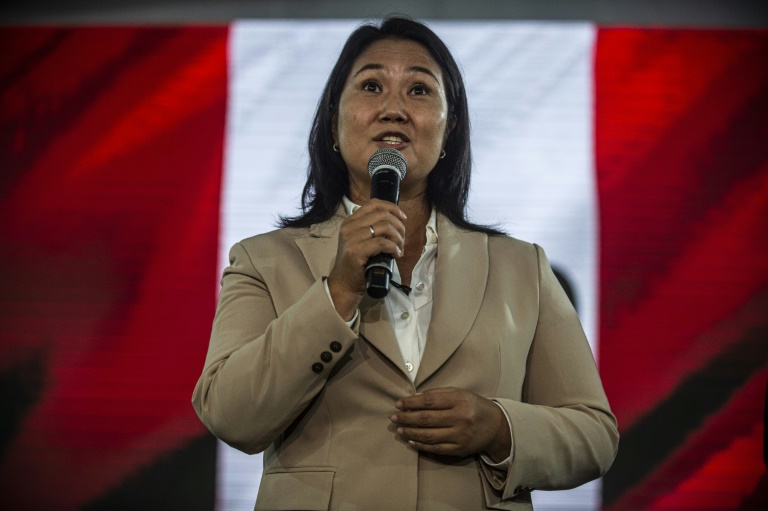Right-wing candidate Keiko Fujimori insisted Saturday that Peru’s presidential election was marred by fraud, as final vote counting dragged on with her leftist rival slightly ahead.
“There was fraud in the voting process. There was manipulation in the voting process,” Fujimori said in a briefing with foreign reporters without providing evidence, as her chances of becoming president seemed to narrow, six days after people in politically turbulent Peru cast ballots.
She alleged there was fraud in the counting of votes, too.
“I am going to recognize the results but we have to wait until the end,” said Fujimori.
She says irregularities in the vote count favored her leftist rival Pedro Castillo, who is ahead by a slim 51,000 votes, with 99.88 percent of the votes counted.
Fujimori risks imminent trial on corruption charges if she loses to Castillo, who has already cast himself as the victor.
Political commentators here say that with Castillo apparently poised to win, Fujimori is trying to sow doubt about the legitimacy of the election so as not to look like the loser and salvage her political image.
“She is clinging to the fraud claim because if she does not, everything she has accomplished comes tumbling down. It is her way of avoiding failure and collapse,” said Hugo Otero, who advised former president Alan Garcia.
Fujimori has asked election authorities to annul around 200,000 votes. The national election board on Friday announced a two day extension of the deadline to file challenges to voting results, then later backtracked.
An election observation mission from the Organization of American States cast doubt Friday on Fujimori’s rigging claims.
But it called on authorities to wait until challenges to the vote had been resolved before calling a winner.
“The Mission has not detected serious irregularities,” the OAS mission said.
– Three presidents in one week –
Peruvians voted last Sunday for their fifth president in three years after a series of crises and corruption scandals saw three different leaders in office in a single week last November, the last one being the country’s caretaker leader Francisco Sagasti.
Seven of the country’s last 10 leaders have either been convicted or are under investigation for graft.
As in Peru’s three previous presidential elections, the tail-end of vote counting has been slow due to delays in delivering ballots from rural and jungle areas, and from abroad — where one million of the country’s 25 million eligible voters live.
Whoever wins will lead a nation battered by recession and the world’s highest coronavirus death rate, with more than 187,000 deaths among its 33 million population.
Two million Peruvians lost their jobs during the pandemic and nearly a third now live in poverty, official figures show.
On the campaign trail, Castillo said Peru’s mining, oil and gas resources “must be nationalized” as he vowed to raise taxes and increase state regulation.
Free-market defender Fujimori has sought to portray Castillo as a communist who would turn Peru into a new Venezuela or North Korea.










